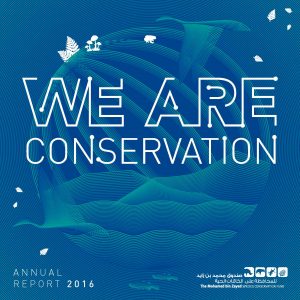JOY AND CHARITY. Central to the religious and cultural life of the United Arab Emirates, Eid Al Fitr is a joyful time with special food, dances and traditions. Eid Al Fitr is one of the two most important religious holidays in the United Arab Emirates. The other being Eid Al Adha. Both of these holidays n the UAE reflect Islam’s central role in Emirati life and the important place the Eid holiday plays in reinforcing family and community ties. Common to both EId Al Fitr and Eid Al Adha is the focus on visiting family to offer eid greetings, the importance of providing charity to the poor and needy, and the joyful festive spirit. The MBZ Fund wishes all Eid Mubarak!
Eid Mubarak!
Another $500k in Sept 2019; Total now $19m
Three times a year, every year, even during the Covid-19 crisis, the MBZ Fund gives $500,000 to species conservation projects. The total now exceeds $20m. This support has gone to more than 2,150 projects across 160 countries targeting more than 1,350 species and subspeices. More importantly, these grants go to species conservationists who engage in get-your-hands-dirty conservation – in the fields, cave systems, mountains, and steams of the world. Browse our case study section to learn more.
Message from the MBZ Fund regarding the COVID-19 pandemic
Given the extraordinary circumstances in which the world finds itself the Mohamed bin Zayed Species Conservation Fund would like to take the opportunity to express our thanks and admiration for the hundreds of people who continue to dedicate their lives to the conservation of species and biodiversity. The Fund would like to reassure its stakeholders and interested parties that it will continue its commitment to support species conservation initiatives globally. Please find below some important points for grant recipients, grant applicants waiting for a decision on their application, and those intending to submit an application.
Razan Khalifa Al Mubarak addresses IUCN SSC Specialist Group Chairs Meeting
Her Excellency Razan Khalifa Al Mubarak opened the meeting of the International Union for Conservation of Nature Species Survival Commission’s Specialists Group Chairs Meeting in Abu Dhabi today.
Fund presents successes to Abu Dhabi Crown Prince Mohamed bin Zayed
Her Excellency Mrs. Razan Khalifa Al Mubarak appealed to the public to help the Mohamed bin Zayed Species Conservation Fund protect the world’s biodiversity and reverse the global extinction crisis.
In a lecture yesterday evening at the Majlis Mohamed bin Zayed, Mrs. Razan Khalifa Al Mubarak, Managing Director of the Mohamed bin Zayed Species Conservation Fund and Secretary General of the Environment Agency Abu Dhabi, outlined the successes of the MBZ Fund over the last 10 years and demonstrated how the people of Abu Dhabi and the UAE can help end the global biodiversity crisis.
Great knot: From Russia to UAE and back again
While on a bird watching trip to Umm Al Quwain in the north of the United Arab Emirates, a teacher at the British School Al Kubairat in Abu Dhabi spotted an Endangered wading bird with a leg band marked ‘E1’. After further investigation, it was discovered that the bird, a Great knot, had been ringed an astonishing 13,000 miles away by a scientist in Russia.
In Sept ’17…another $500k for conservation
For the 2nd round of grants in 2017, the Fund distributed more than $500k in support of the world’s most endangered species. This is the second of 3 rounds of funding planned for 2017.
The Fund supported 58 more conservation projects with $500,003 bringing the total amount donated to species conservation to $ 15,992,639 in 9 years. Here is a short sample of the 50+ projects in the latest round of grant giving.
MBZ Fund issues 2016 Annual Report
The Mohamed bin Zayed Species Conservation Fund is issuing its 2016 Annual Report today.

Whether it’s surveying fungi in Far Eastern Russia or working with local communities and wildlife rangers to reduce elephant-human conflict in India the Mohamed bin Zayed Species Conservation Fund continues to support individuals in the villages, field stations, laboratories and homes, who are committed to conserving their local (and the world’s global) threatened species.
The Fund supported 172 species conservation projects in 69 countries with more than $1.52 million in 2016. These funds were distributed globally among conservation projects to some of the most endangered species including fish, mammals, plants, reptiles and even fungi.
The annual report is available for download here: http://www.speciesconservation.org/media-center/downloads
The call for 2017 EDGE Fellowship applications is NOW OPEN
Our friends at ZSL’s EDGE of Existence programme (www.edgeofexistence.org) are calling for applications for its fellowship programme.
The EDGE fellowship programme may be an exciting opportunity for many of our grant recipients. The unique programme focuses on evolutionarily distinct and globally endangered species across a variety of species types and locatoins.
In Sept ’16…another $500k for conservation
For the 2nd round of grants in 2016, the Fund distributed more than $500k in support of the world’s most endangered species. This is the second of 3 rounds of funding planned for 2016.
The Fund supported 51 more conservation projects with $508,340 bringing the total amount donated to species conservation to $14,485,278 in 7 years. Here is a short sample of the 50+ projects in the latest round of grant giving.

